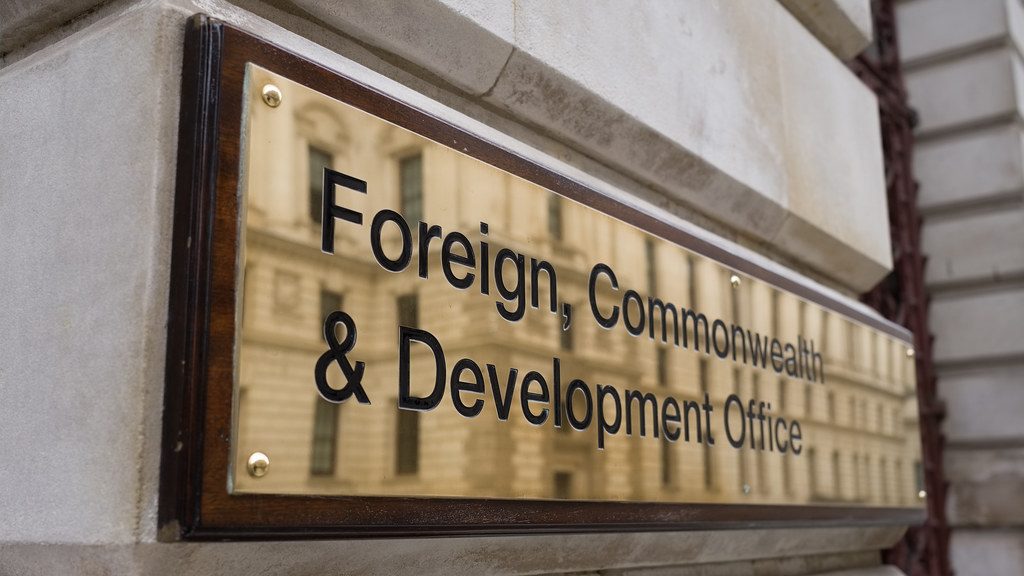Diplomats may be contravening international regulations aimed at protecting public health from tobacco industry interference, according to new research published in Frontiers in Public Health.
Analysis by researchers at the Tobacco Control Research Group (TCRG) at the University of Bath reviewed instances of diplomats promoting tobacco companies. The diplomats were all from high income countries and the vast majority of actions were in low- and middle-income countries.
In the main case study presented, a UK diplomat engaged with the tobacco industry in the opening of a new cigarette factory in the Middle East. The guidance from the UK’s Foreign, Commonwealth and Development Office (FCDO) explicitly says that diplomats should not do this.
International Rules
The greatest barrier to effective tobacco control remains the industry itself. Globally, more than 180 countries have ratified the World Health Organization Framework Convention on Tobacco Control (WHO FCTC), which includes a commitment to protect public health policies from commercial and other vested interests of the tobacco industry. Government interactions with the tobacco industry should be strictly limited to what is absolutely necessary for regulation.
In addition, the UK government’s advice to its diplomats is that: “Posts must not:... Attend or otherwise support receptions or high-profile events, especially those where a tobacco company is the sole or main sponsor and/or which are overtly to promote tobacco products or the tobacco industry (such as the official opening of a UK tobacco factory overseas).”
Lack of transparency
Dr Raouf Alebshehy, the lead author on the paper said, “The problem is two-fold. The evidence suggests that diplomats in many countries were helping promote the tobacco industry, but there is also a lack of transparency, which makes it difficult for those in tobacco control to know the true picture. From what we have seen documented by the tobacco control community, it suggests that on too many occasions diplomats are acting to help tobacco businesses and so are undermining hard fought public health measures.”
Incidents across the globe
The research describes how a senior ambassador in the Middle East was pictured in the Arabic media opening a factory in Jordan, part-owned by British American Tobacco and the Yemeni government. Despite making a Freedom of Information request covering the period when this incident occurred, the researchers found that the event had not been officially recorded.
A review of similar, older incidents that had been previously reported by researchers and investigators found examples of UK diplomats engaging in behaviour that could be interpreted as promoting tobacco industry interests in Panama, Bangladesh, Pakistan, Venezuela, Laos, Cuba and Burundi.
In another example, Swiss diplomats lobbied the government in Moldova on behalf of Philip Morris International. The tobacco firm contributed towards the inauguration party for a new Swiss embassy building in Moscow.
Meanwhile Japan Tobacco International (JTI) has been able to count on diplomats assisting it in Ethiopia, Tanzania and Zambia. In 2021, a leaked letter from the Japanese ambassador to Bangladesh showed that he had threated that country with a reduction in investment if it did not act more favourably towards JTI in disputes on taxation changes.
Many of these incidents took place after the ratification of the WHO FCTC at the turn of the century. The millions of industry documents dating back decades and released as a result of litigation reveal that such links have a long history. Indeed, the British Ambassador to Mexico is recorded in one industry document from 1988 as saying he had a “willingness to be orchestrated when requested”.
Action required
Dr Alebshehy said that for countries such as the UK, who wish to be seen as leaders in tobacco control, the onus is on them not only to follow their own rules, but also ensure there is transparency and accountability.
He added: “In this case study involving a UK ambassador, it seems that while the UK was funding tobacco control activities in Jordan through the FCTC 2030 project, its diplomats were engaging with a tobacco company which was expanding its operations there.
This contradiction raises a question around the UK’s priorities specifically in Yemen and Jordan, and in low and middle-income countries more generally.
Does the UK want to support the tobacco industry or promote public health? It cannot do both.”
Read more on this research, including a comment from the FCDO, in the Guardian.

